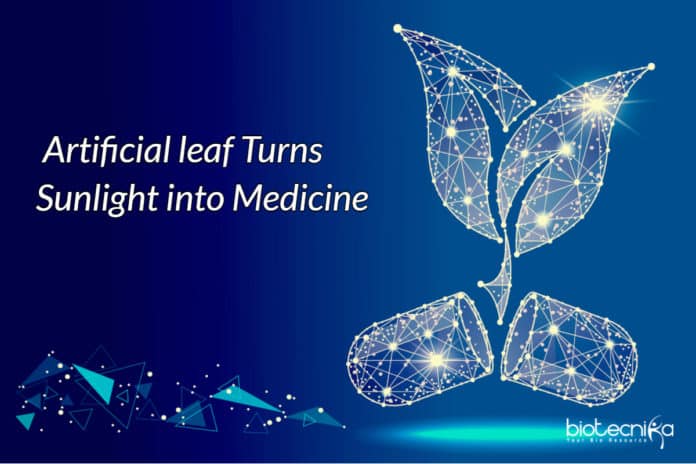Scientists built Artificial leaf that produces medicines from Sunlight
Our sun is an abundant and incredible source of energy that we’re only just now beginning to learn how to tap. On the other hand, plants are masters at exploiting the free energy delivered from the sky, so it’s only natural that researchers look them for inspiration.
Now, in an ongoing effort from researchers with the Eindhoven University of Technology in the Netherlands has yielded a promising new type of an artificial leaf which produce medicines from sunlight. Like actual foliage, faux leaves take in the sunlight and use it
to create something that is entirely new, only instead of generating fuel for a living plant, these mini-reactors can produce medicine for humans.The scientist team has been working on this artificial leaf system for some time, first presenting a prototype back in the year 2016. Now, this technology has been refined and the scientists say that the colorful fake foliage can be used to create just about any kind of medicine imaginable.
Taking cues from Mother Nature, these tiny reactors utilize intricate channels that flow like veins through the leaves. When sunlight hits certain liquids flowing through these leaves it sparks a chemical reaction which is a process that would normally require electric power, even harsh chemicals or both, but just by using sunlight to power the drug production, it becomes much more sustainable.
The researchers envision such systems being used in places where medicines are in short supply and where producing it on-site is very difficult. The production of anti-malaria drugs in the jungle without a power grid could become much easier thanks to these advancements.
Timothy Noel who led the research on artificial leaf said in a statement that there are hardly any obstacles to putting this artificial leaf technology that produces medicines in practice, except for the fact that this only works during daylight.
He added that these artificial leaves are perfectly scalable; and where there is the sun, it works. The tiny reactors can be easily scaled and its inexpensive and self-powered nature makes them ideally suitable for the cost-effective production of chemicals with solar light.






























